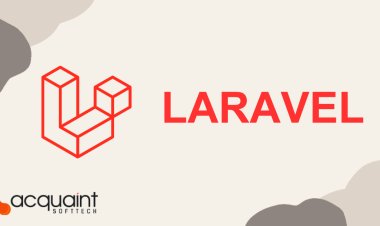Why Career Exploration Is Important ?
As emphasized earlier, exploring careers is exploring the self. It follows that you must be acquainted with your own idiosyncrasies to land the right position.

Growing interest in career exploration and how it might assist students in understanding the value of their education in connection to their professional objectives has been observed in the field of vocational psychology. In fact, exposure to career exploration modules has been linked favourably to student self-efficacy, career planning, and career maturity (Talib, 2015).

This article explores the value of examining career possibilities, explains why it's crucial, and talks about the Ikigai concept in relation to career mapping. It will also list practical career exploration activities.
The Power of Career Exploration
Career exploration was only recognised as the first step in conventional theoretical frameworks. It was considered to be a stage that people eventually pass through, similar to OJT, in which case you finish it and apply for a genuine job. However, recent study has started to acknowledge how it affects various stages of our vocational journeys. For instance, a life-span, life-space approach to career development was first presented in Super (1980). He noted that there are various developmental stages that people go through, and that career search serves a purpose in each step.

One may even contend that pursuing a career is a form of self-discovery. It is, in the words of Flum and Blumstein (2020), "a critical means by which individuals can construct themselves and re-explore and reconstruct themselves throughout the life span and across life roles."
Without a doubt, the study of vocation now includes job exploration as a key factor. Along with the widely researched elements of interests, choices, and performance, it serves as a major idea in Lent and Brown's well-known model of Career Self-Management under Social Cognitive Career Theory. Jiang and his fellow academicians were furthermore obligated to publish a survey of relevant literature that contains 67 quantitative research articles due to the subject's expanding popularity. They arrived at the following conclusions, which provide an explanation of career exploration. 2018 (Jiang et al.)
1. Interpersonal and intrapersonal aspects support career exploration.
2. It demands individual agency.
3. It is generally believed to have a favourable effect on career outcomes.
We can infer from the summary above that career exploration has the power to transform lives. That is, if we are in a setting that encourages us in our job choices, gives us the freedom to exercise our personal agency, and gives us the chance to consider our professional options, we could just find our place in this world. This has broad ramifications for society as a whole as well as for individuals. We may be able to create a strong workforce by encouraging career exploration and hiring people who are passionate about their employment. As a result, businesses won't have trouble with employee engagement and retention. They would attract and retain the individuals they require for success.
One of your practical alternatives, if you're one of the dreamers who still believes they can make a difference in the world, may be to promote career exploration.
What do you love?
Find what you love and let it kill you, said Bukowski. Ikigai, on the other hand, holds that you should find what you love and let it nourish you. Additionally, you can excel at what you do and show the world your talent. Isn't that better now?
According to empirical data, intrinsic motivation is crucial for job advancement. You could now desire to return to childhood fantasies that you once had. For instance, your response to the prior magic question. Be aware, though, that you must know something quite well in order to realise you love it. You can better control your expectations by doing career exploration. Even if you think you love something, experience may later reveal that you don't, which might cause a setback.
What are you good at?
Make a list of your strengths, then look into careers that value them the most. Career exploration is a form of self-exploration, as was previously stressed. This means that in order to get the job, you need to be aware of your own quirks. Investigating diverse employment settings will help you choose where you will fit in and develop as a person.
When you are interested in something, you are more likely to excel at it. The majority of research in occupational psychology and part of its objectives are therefore focused on using interest-based metrics. Consider looking into Holland's Occupational Themes, which divide individuals into six groups: Realistic, investigative, artistic, social, businesslike, and conventional are the first three qualities.
What can you give to the world?
Finding a purpose in life requires having a sense of social and political awareness. You might want to look over the United Nations' 17 Sustainable Development Goals and see if any of them strike a chord with you. Career exploration can help you get ready for the challenges that lie ahead, whatever you decide is worthwhile to pursue.
What can you get paid for?
You should strongly avoid adopting the starving artist metaphor. particularly if you have the opportunity to investigate careers and figure out how to market your abilities.
You can decide to investigate other industries, particularly in light of how the epidemic is changing the nature of the workplace. In these unpredictable times, some industries may provide greater job chances because they are handling the situation better than others
Everybody travels on a separate road, and the most prosperous people forged their own path instead of just following the crowd. Look for your Ikigai. Allow it to lead you.













